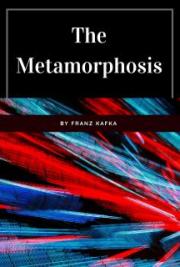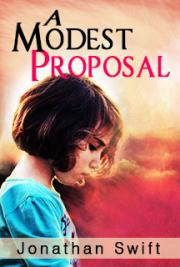Chun Wa
To Henry de C. Ward
His name was Chun Wa; possibly there was some more of it, but that is all I can remember. He was about four or five years old, and I made his acquaintance the day we arrived at the temple. It was at the end of September. We had left Mukden in order to take part in what they said was going to be a great battle. I don't know what the village was called at which we arrived on the second day of our march. I can only remember that it was a beautiful and deliciously quiet spot, and that we established ourselves in a temple; that is to say not actually in the temple itself, but in the house of the priest. He was a Buddhist who looked after the deities of the place, which were made of carved and painted wood, and lived in a small pagoda. The building consisted of three quadrangles surrounded by a high stone wall. The first of these quadrangles, which you entered from the road, reminded me of the yard in front of any farm. There was a good deal of straw lying about, some broken ploughshares, buckets, wooden bowls, spades, and other implements of toil. A few hens hurried about searching for grains here and there; a dog was sleeping in the sun. At the further end of the yard a yellow cat seemed to have set aside a space for its exclusive use. This farmyard was separated from the next quadrangle by the house of the priest, which occupied the whole of the second enclosure; that is to say the living rooms extended right round the quadrangle, leaving a square and open space in the centre. The part of the house which separated the second quadrangle from the next consisted solely of a roof supported by pillars, making an open verandah, through which from the second enclosure you saw into the third. The third enclosure was a garden, consisting of a square grass plot and some cypress trees. At the further end of the garden was the temple itself.
We arrived in the afternoon. We were met by an elderly man, the priest, who put the place at our disposal and established us in the rooms situated in the second quadrangle to the east and west. He himself and his family lived in the part of the house which lay between the farmyard and the second enclosure. The Cossacks of the battery with which I was living encamped in a field on the other side of the farmyard, but the treasure chest was placed in the farmyard itself, and a sentry stood near it with a drawn sword.
The owner of the house had two sons. One of them, aged about thirteen, had something to do with the temple services, and wore a kind of tunic made of white silk. The second was Chun Wa. It was when the sentry went on guard that we first made the acquaintance of Chun Wa. His cheeks were round and fat, and his face seemed to bulge out towards the base. His little eyes were soft and brown and twinkled like onyxes. His tiny little hands were most beautifully shaped, and this child moved about the farmyard with the dignity of an Emperor and the serenity of a great Pontiff. Gravely and without a smile he watched the Cossacks unharnessing their horses, lighting a fire and arranging the officers' kit. He walked up to the sentry who was standing near the treasure chest, a big, grey-eyed Cossack with a great tuft of fair hair, and the expression of a faithful retriever, and in a tone of indescribable contempt, Chun Wa said "Ping!" "Ping" in Chinese means soldier-man, and if you wish to express your contempt for a man there is no word in the whole of the Chinese language which expresses it so fully and so emphatically as the word "Ping."
The Cossack smiled on Chun Wa and called him by a long list of endearing diminutives, but Chun Wa took no notice, and retired into the inner part of the house as if he had determined to pay no more attention to the barbarous intruders. The next day, however, curiosity got the better of him, and he could not resist inspecting the yard, and observing the doings of the foreign devils. And one of the Cossacks--his name was Lieskov and he looked after my mule--made friends with Chun Wa. He made friends with him by playing with the dog. The dog, like most Chinese dogs, was dirty, distrustful, and not used to being played with; he slunk away if you called him, and if you took any notice of him he evidently expected to be beaten, kicked, or to have stones thrown at him. He was too thin to be eaten. But Lieskov tamed the dog and taught him how to play, and the big Cossack used to roll on the ground while the dog pretended to bite him, until Chun Wa forgot his dignity, his contempt, and his superior culture, and smiled. I remember coming home that very afternoon from a short stroll with one of the officers, and we found Lieskov lying fast asleep in the farmyard right across the steps of the door through which we wanted to go, and Chun Wa and the dog were sitting beside him. We woke him up and the officer asked him why he had gone to sleep.
"I was playing with the dog, your honour," he said, "and I played so hard that I was exhausted and fell asleep."
After that Chun Wa made friends with everybody, officers and men, and he ruled the battery like an autocrat. He ruled by charm and a thousand winning ways. But his special friend was Lieskov, who carried the child about on his back, performed many droll antics to amuse him, and taught him words of pidgin Russian. Among other things he made him a kite--a large and beautiful kite--out of an old piece of yellow silk, shaped like a butterfly. And Chun Wa's brother flew this kite with wonderful skill, so that it looked like a glittering golden bird hovering in the air.
I forget how long we stayed at this temple, whether it was three days or four days; possibly it was not so long, but it seemed like many months, or rather it seemed at the same time very long and very short, like a pleasant dream. The weather was so soft and so fine, the sunshine so bright, the air so still, that had not the nights been chilly we should never have dreamt that it was autumn. It seemed rather as though the spring had been unburied and had returned to the earth by mistake. And all this time fighting was going on to the east of us. The battle of Sha-Ho had begun, but we were in the reserve, in what they called the deepest reserve, and we heard no sound of firing, neither did we receive any news of it. We seemed to be sheltered from the world in an island of dreamy lotus-eating; and the only noise that reached us was the sound of the tinkling gongs of the temple. We lived a life of absolute indolence, getting up with the sun, eating, playing cards, strolling about on the plains where the millet had now been reaped, eating again and going to bed about nine o'clock in the evening. Our chief amusement was to talk with Chun Wa and to watch the way in which he treated the Cossacks, who had become his humble slaves. I am sure there was not one of the men who would not have died gladly for Chun Wa. One afternoon, just as we were finishing our midday meal, we received orders to start. We were no longer in the reserve; we were needed further on. Everything was packed up in a hurry, and by half-past two the whole battery was on the march, and we left the lovely calm temple, the cypress trees, the chiming gongs, and Chun Wa. The idyll was over, the reality was about to begin. As we left the place Chun Wa stood by the gate, dignified, and grave as usual. In one hand he held his kite, and in the other a paper flower, and he gave this flower to Lieskov. Next day we arrived at another village, and from there we were sent still further on, to a place whence, from the hills, all the fighting that was going on in the centre of that big battle was visible. From half-past six in the morning until sunset the noise of the artillery never ceased, and all night long there was a rattle of rifle firing. The troops which were in front drew each day nearer to us. Another two days passed; the battery took part in the action, some of the men were killed, and some of the men and the officers were wounded, and we retreated to the River Sha-Ho. Then just as we thought a final retreat was about to take place, a retreat right back to Mukden, we recrossed the river, took part in another action, and then a great stillness came. The battle was practically over. The advance of the enemy had ceased, and we were ordered to go to a certain place. We started, and on our way we passed through the village where we had lived before the battle began. The place was scarcely recognisable. It was quite deserted; some of the houses looked like empty shells or husks, as though the place had suffered from earthquake. A dead horse lay across the road just outside the farmyard.
One of the officers and myself had the curiosity to go into the temple buildings where we had enjoyed such pleasant days. They were deserted. Part of the inner courtyard was all scorched and crumbled as if there had been a fire. The straw was still lying about in the yard, and the implements of toil. The actual temple itself at the end of the grassy plot remained untouched, and the grinning gods inside it were intact; but the dwelling rooms of our host were destroyed, and the rooms where we had lived ourselves were a mass of broken fragments, rubbish, and dust. The place had evidently been heavily shelled. There was not a trace of any human being, save that in the only room which remained undestroyed, on the matting of the hard Khang--that is the divan which stretches like a platform across three-quarters of every Chinese room--lay the dead body of a Chinese coolie. The dog, the cat, and the hens had all gone.
We only remained a moment or two in the place, and as we left it the officer pulled my sleeve and pointed to a heap of rubbish near the gate. There, amidst some broken furniture, a mass of refuse, burned and splintered wood, lay the tattered remains of a golden kite.







